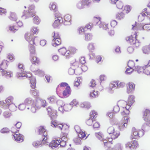In the end, the industry had nothing to fear. The methodical and rational safety recommendations of the FDA that threatened to upend their business model were no match for the often irrational and always politically attuned U.S. Congress. When dealing with issues affecting the pocketbooks of their donors, politicians can expediently turn fiction into fact or vice versa. The FDA task force recommendations were quietly shelved, and in their place in 1994, Congress enacted the Dietary Supplement Health and Education Act (DSHEA), which allowed the marketing and sale of dietary supplements with little or no regulation by the FDA.2 Manufacturers were merely advised to provide “truthful” product label information and to police themselves. As long as product labels did not make claims about treating diseases but focused instead on promoting “organ health,” manufacturers would be in the clear. Hence, the proliferation of terms such as, “improving bone and joint health or boosting immune function”—thinly veiled references to such conditions as osteoarthritis, osteoporosis, rheumatoid arthritis or lupus.
Congress granted literary license to manufacturers to embellish the efficacy of their products and placed it all beyond the reproach of the FDA. Just to be sure, most supplements include this nifty warning label describing their claims: “These statements have not been evaluated by the FDA. This product is not intended to diagnose, treat, cure or prevent any disease.”
Why would a revered institution that has produced outstanding physicians … & many of the current leaders of American medicine continue to allow its good name—its brand—to be tarnished by its association with Dr. Oz?
Does the self-policing of the industry demanded by Congress really work? No. Take the case of the supplement, ephedra, which had been well studied and described as a health hazard causing serious toxicities, including cardiac arrest (New England Journal of Medicine) in 2000.6 But it remained on the market for another three years. Ephedra was found to have contributed to the death of pitcher Steve Bechler of the Baltimore Orioles, who died suddenly during spring training, and the subsequent intense media glare finally led to the supplement being banned 10 months following his death. By then, ephedra was linked to 155 deaths and more than 16,000 serious adverse events.
The lack of regulatory oversight can lead to other problems. According to an FDA estimate, 70% of supplement makers fail to adhere to practices designed to prevent adulteration.
Earlier this year, New York State Attorney General Eric T. Schneiderman investigated herbal supplements sold by four major retailers. Using an advanced DNA testing procedure, investigators found that four out of five bottles contained no detectable genetic material from the plants advertised on their labels.7 Some contained filler, such as powdered rice, wheat and bits of houseplants. Others tested positive for potentially toxic ingredients including amphetamines, fluoxetine, anabolic steroids and sildenafil. Not surprisingly, just over the past two years, there have been 33 fatalities, and nearly 2,300 serious illnesses associated with the use of dietary supplements. A recent study found that about two-thirds of dietary supplements recalled by the FDA still contained banned substances at least six months after being recalled.8


